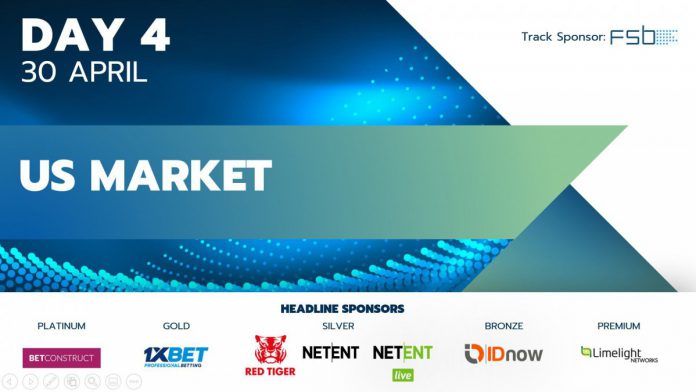Jason Scott, VP of Trading at Roar Digital, praised the gambling industry’s response to COVID-19 but suggested that non-traditional sports content, for example table tennis, will be “duck back into obscurity” in terms of wagering when the big US sports return.
He was part of a panel discussing the alternatives for sports betting when traditional sports are shut down, held as part of the US Track at the inaugural SBC Digital Summit.
The panellists started by talking about some of the sports to capture headlines over recent weeks, particularly table tennis, Nicaraguan soccer and Taiwanese baseball.
Jamie Shea, Head of Sportsbook Digital at DraftKings, said: “While sports are on hiatus, DraftKings isn’t. Some of the stuff we’ve put out there is not traditional content.
“Table tennis was not high on the list before, but people have really embraced it. I’m excited to see what it will look like when traditional sports come back. I think that one of the silver linings in all of this is that there’s been a lot of new fans created for non-traditional markets.”
Max Bichsel, VP for US Business at Gambling.com Group, admitted that “you have a giggle” about some of these popular markets before adding: “If you can get a new depositing customer in this environment, it’s really a testament to how strong the operators are, how strong the experience is and ultimately how strong the product offering is. You start to see a real delineation between the strong operators and the weaker ones.”
Keith O’Loughlin, SVP for Sportsbook & Platforms at SG Digital, agreed that customers have been “switching in droves” to alternative content. To emphasise this point, he shared: “We’ve seen customers in APAC (Asia Pacific) holding 70-80% of previous turnover and customers in Europe between 30 and 50%, while in the US anything between 15 and 45%.”
However, Scott said he had a bit of a different take on this. He explained: “We’re in peculiar times. For people that haven’t lost their job, they’ve never had more disposable income and more time. My suspicion, in fact, my guarantee, is that when the NBA and MLB are back we’ll write as many bets for table tennis in November as we did last November – none.
“People have adapted because they want to spend their money. These sports are a great adaption, something for people to take away the mundaneness of living at home. Long term, though, it will have no effect on how any of the markets go. As a wagering option, they’ll duck back into the obscurity they’ve always been.”
Later, a question came from the audience about political betting in the US, which session moderator Robert Davidman – Partner at Slapshot Media – put to the panellists.
Bichsel replied: “We had a little bit of a false start in West Virginia with some election betting, but markets like that are definitely attractive. New Jersey has stuff where you can wager on Oscars or certain novelty bets that drive some stickiness to the customer. However, I don’t expect the US to adopt the level of novelty bets we see in Europe.”
Meanwhile, Scott bemoaned the wagering opportunities that the US market is missing out on by highlighting: “The 2016 election in America is the largest betting event the world has seen – it still hasn’t been surpassed. I had a look on Betfair this morning and there’s been $36m matched on who will be the next US president. The sooner we can broaden our base and bring this to our clients will be fantastic for wagering in this country.”
The discussion then turned to the potential for virtual sports and esports in the US. Scott argued that the growth opportunity is more on the virtuals side, adding: “In esports, there’s so many concerns there with underage participants and integrity issues. I don’t think that’s going to grow but the other side will continue on.”
The panellists all agreed that virtuals are great ‘filler’ content and can provide a good option for those who want more action after a sports event has finished, but doubted whether its popularity in the US would ever reach European levels, let alone those in Africa.
Bichsel said: “Virtual horseracing is maybe a little bit of a different conversation, but if you’re talking about virtual sports in general it’s effectively a sugar substitute. If the NFL starts back up, that’s the king. It’s the real deal and what people are looking for. There is no comparison for real-life sports.”
Today marks your last chance to sign up for the SBC Digital Summit and access over 85 sessions on demand, or engage in the live sessions still being run today. Click HERE for more information.















